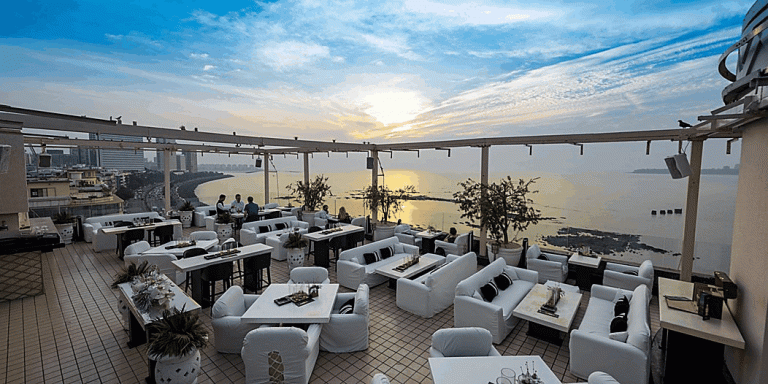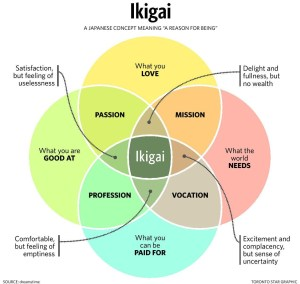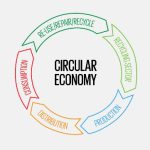Few weeks ago, I met a senior executive of a large corporate in Ahmadabad for a discussion. This corporate wanted to strengthen their Environmental Social Management System (ESMS) and Governance (ESG). The Executive must be one of the IIM graduates I guess – as he spoke to me with an authority despite no great knowledge about ESG. (Lately I have realized that speaking about environment with an authority has become rather common. You don’t need any formal exposure or understanding of this “universal” subject). So, I heard him patiently.
“Well, our interest is to improve our documentation on ESG per international standards, be ahead of our competitors and meet requirements of the investors. We realize that ESG is one of our strategies of growing business – So we want someone who can speak the ESG language of the investors”. He summarized the assignment as if he shared a secret to enlighten me.
When I returned to Mumbai, I met my Professor Friend at our usual coffee shop. I narrated to him my encounter with the Corporate. He wasn’t surprised.
“Do you think that business is really interested in operating under the ESG?” He said sarcastically.
“Well Professor, don’t you see that several Corporates publish Sustainability Reports in the GRI format, get certifications such as Water Positive, Zero Waste to Landfill, Cradle to Cradle etc. Sure, all these business houses truly believe in sustainability, invest their moneys, take actions to save this planet and do their bit. So please don’t question the genuineness of their intensions Professor” I protested.
Professor lit his cigar.
“Dr Modak, many times the actions most Corporates take are simple good practices that every business must, and not “extraordinary”. Many actions are taken essentially to wash the sins. These companies with the help of consultants and certifiers “glorify” what they do using smart metrics e.g. GHG emissions reduced. They publish on the websites the SDG Compass (indicators based on SDG targets) that is often trivial or sometimes even questionable. The new fad in this game is TFCD” Professor retorted.
(For those who are not into the lingo of sustainability, TFCD is Task Force of Climate Related Financial Disclosures)
I could imagine a bunch of CSOs, consultants from the Big 4 and Certifiers having a good laugh glorifying sustainability, sitting at the “Dome” at the Intercontinental on Marine drive in Mumbai.

But despite Professors negative outburst, I wasn’t prepared to write off business’s interest to practice sustainability. Professor had missed the CSR part. Doesn’t business spend money on doing something for the community? Of course, all want to be compliant with the law at any cost. And don’t forget that so many NGOs get benefitted in the process.
I was lost in my thoughts.
Professor had in the meanwhile ordered for some more coffee. I could see that he was getting serious.
“Dr Modak – how much of internal communication happens in the corporates on their work on sustainability? Excepting very few, most corporate do not involve their employees to share the sustainability stories or take the sustainability agenda across the supply chains. There is no effort made to make the “eco-system” around their businesses “sustainability literate”, compassionate and responsible. All you see is smart documentation”
He continued.
“A deliberate effort to transform this ecosystem and ingrain sustainability as a value proposition does not happen. Sustainability related discussions happen mainly between the CSOs and CSOs consultants. Practicing and communicating sustainability has become like ticking checkboxes, filling of formats, creating evidence and figuring out ways for communication with factor x.”
I could understand Professor’s anguish. But of course, I could also see that he was painting a rather negative and biased picture. So, what 90% of the business overplay sustainability as a green wash but there is still a good lot of 10%. And the first thing for the business is the financial sustainability – ecological sustainability comes later. Perhaps, Professor was too idealistic.
“So, what’s your suggestion Professor?” I asked.
Professor took a deep puff “Have you heard about Ikigai?”
I had heard about this concept and even read a book “Ikigai The Japanese Secret to a Long and Happy Life”, by Hector Garcia and Francesc Miralles.
For those who haven’t read this book, Ikigai (pronounced ee-key-guy) is a wonderful Japanese concept that essentially means “a reason for being.” It’s made from two Japanese words: iki, meaning “life” and kai, meaning “effect, result, worth or benefit.” When combined, ikigai means: “a reason for living”. Ikigai uses synonymously purpose, passion, meaning, mission, vocation and the drive. If you brew all these notions together and distill its contents, you practice sustainability.

Ikigai is an attractive theory that found its evidence in a community on the island of Okinawa, Japan. Okinawa is nicknamed the Village of Longevity because its residents have the highest life expectancy in the world and enjoy happiness derived from being busy at some activity that holds meaning and purpose for them.
Since I nodded yes, Professor continued
“Well Dr Modak, you don’t practice sustainability if you are not clear about “your” ikigai. Most people are not as we don’t give sufficient time to find reason to live. So, you see people overconsuming and not sensitive to wastes they produce. Environment gets talked about but not respected enough. The problem compounds when you see contrasts around, in your work-space and observe “fake sustainability”. I thought Professor made a good point.
I started thinking how businesses to their best can, ensure that people who work or engage with them discover their ikigai. For this the work has to be enjoyable; it should be stimulating and fulfilling and meaningful. So, why can’t a business understand its own ikigai i.e. finding “reason to do business” and get all the employees involved?
“You are right Dr Modak” Professor spoke as if he read my mind.
“Many businesses don’t realize that growing for the sake of growth is like a tumor. Companies with a strong sense of purpose and values perform better than their peers.Companies with a purpose do live longer and meaningfully so ! This happens when the business discovers its ikigai”.
“Actions speak louder than words, and purpose is derived from behaviors, not from stated goals. Branding sustainability is fine so long it reflects what the organization is actually doing. The business’s Product Vision doesn’t count, because it describes what you want to create, not why.Business needs to do what the world needs. This is where ikigai can help.”
“But finding ikigai is a long and lengthy process. It will likely take more than a two-day offsite with management team that are held in a resort”
Professor spoke in spurts. I realized that he still lived in an idealized world. Ikigai in Okinawa worked because it was and is an island.
“But Professor, who has that kind of time?” I couldn’t resist to ask.
Professor extinguished his cigar indicating that the conversation was over.





